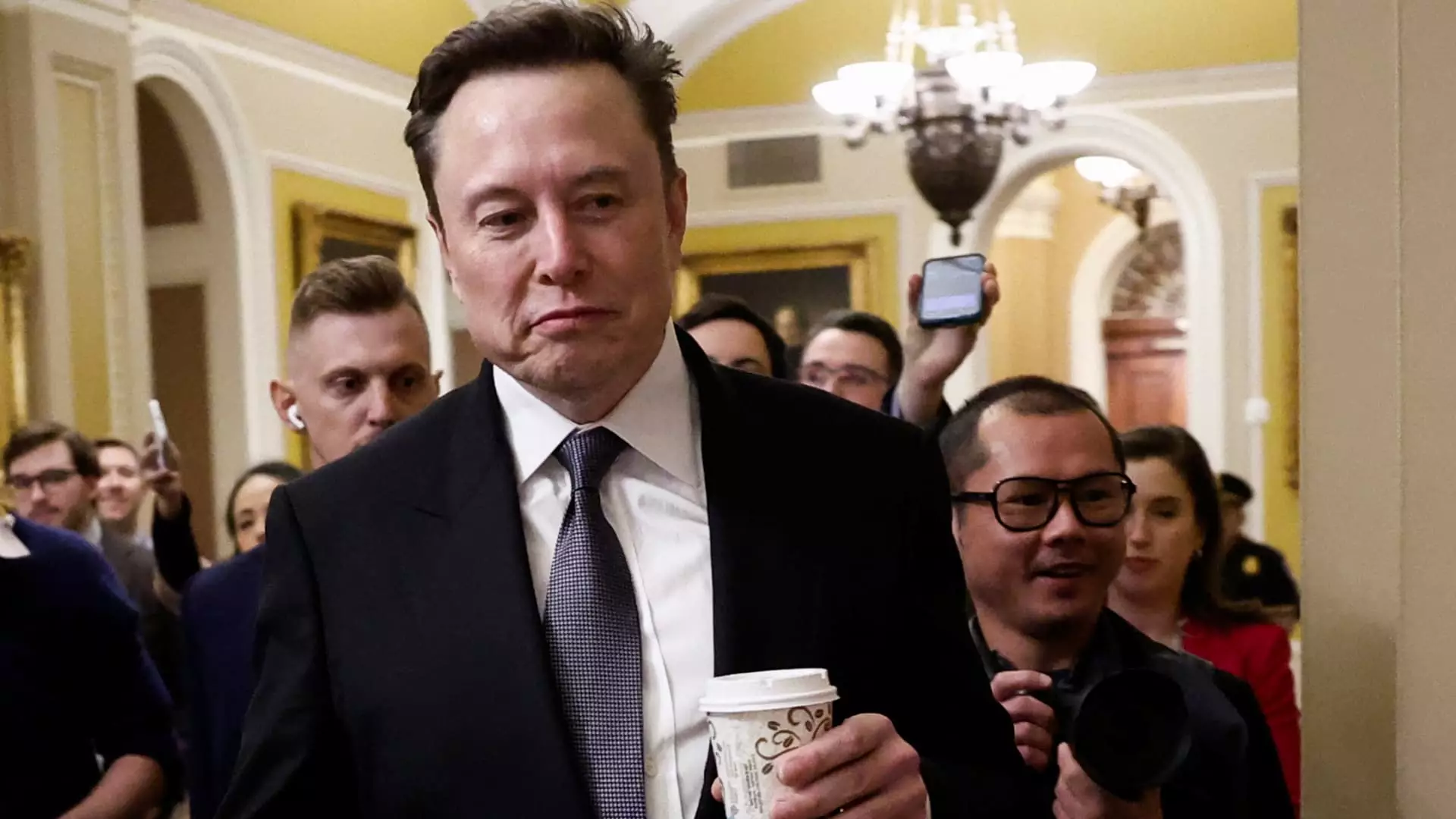Easterly Government Properties, trading under the ticker symbol DEA, has recently found itself in a precarious situation as investor sentiments have turned sour. Since the U.S. presidential elections, the stock has endured a significant drop of 12%. The root cause of this investor anxiety can largely be attributed to the impending overhaul of federal spending spearheaded by the new Department of Government Efficiency, colloquially known as DOGE. As this body, led by high-profile entrepreneurs Elon Musk and Vivek Ramaswamy, sets out to trim $500 billion from federal expenditures, the ramifications for businesses like Easterly Government Properties are increasingly uncertain.
At the core of Easterly’s operations is its extensive portfolio of government leases, encompassing around 100 properties throughout the United States. Alarmingly, a staggering 98% of the company’s revenue is derived directly from these leases. This dependency on government contracts places Easterly under the microscope, particularly as discussions of budget cuts grow louder. CEO Darrell Crate acknowledges the serious concerns regarding potential budget reductions, emphasizing that their properties serve sectors of government that are critical to ongoing operations, such as the DEA, FDA, and various federal law enforcement agencies. In a recent interview, he stressed, “Our leases are in DEA and FDA drug labs, where we help analyze things like fentanyl before admission into evidence,” underscoring the operational importance of their facilities.
Despite Crate’s assertions regarding the necessity and importance of their properties, Wall Street has reacted cautiously. Analysts are divided on their outlook for the company, with several expressing skepticism over the continuity of certain leases under tightened government budgets. John Kim from BMO Capital Markets remarked, “The company does have mission-critical leases, but part of their real estate portfolio may fall into an area that gets cut.” His sentiment reflects a broader market concern surrounding the future viability of their leases amid potential cuts to federal programs.
The company’s current dividend policy also raises eyebrows. Easterly offers a quarter dividend of 27 cents per share, resulting in an attractive yield of around 9%. Yet, analysts like Kim believe this is unsustainable and propose that reducing the payout could actually be more beneficial for the overall health of the stock. The divide among analysts is evident, with some viewing the company as a risky investment while others remain optimistic about its future, stating that worries surrounding the stock are exaggerated.
The Push for Change: CEO’s Perspective
Crate is acutely aware of the challenges facing his business, and he is vocal about his commitment to tackling government waste. He welcomes the initiatives proposed by DOGE, suggesting that public-private partnerships can enhance federal efficiency by improving service delivery while curtailing unnecessary expenditures. His proactive stance aims to position Easterly as part of the solution to governmental inefficiencies rather than a burden upon them.
Furthermore, Crate’s familial ties to the Trump administration may present unique opportunities for dialogue and advocacy concerning his company’s role in government operations. His brother’s connections to Trump’s campaign could potentially allow him to navigate the complicated governmental landscape more effectively, yet this has yet to translate into tangible benefits, as evidenced by the stock’s further decline into December.
Moving forward, it is critical for Easterly to recalibrate its strategic vision and reassess its communication with both investors and government affiliates. There exists a pressing need for transparency regarding how its leases directly contribute to essential government functions and how the company plans to adapt to any shifts in federal funding. As the landscape evolves with ongoing discussions regarding budget cuts and efficiency drives, the importance of clearly articulating the value proposition of its properties cannot be overstated.
While Easterly Government Properties faces significant headwinds, the overall narrative is not devoid of potential. The company stands at a crossroads where its ability to align itself with government restructuring and demonstrate the essential nature of its leases will be crucial to overcoming investor skepticism and stock volatility. With a steady hand on the steering wheel, there might yet be a path toward stability and renewed investor confidence in the coming months.

